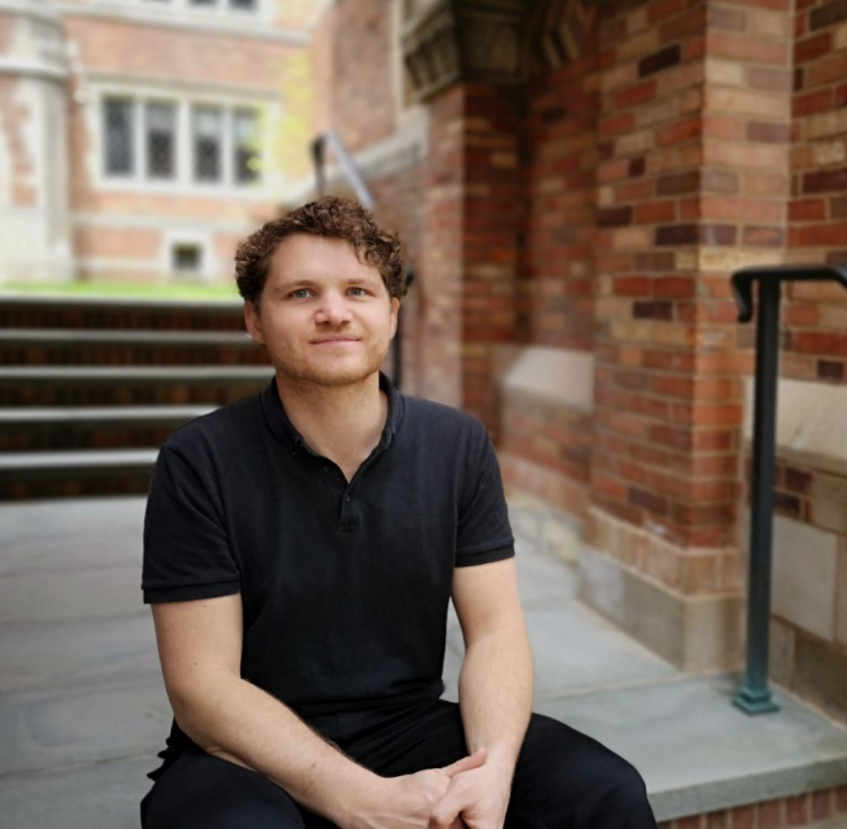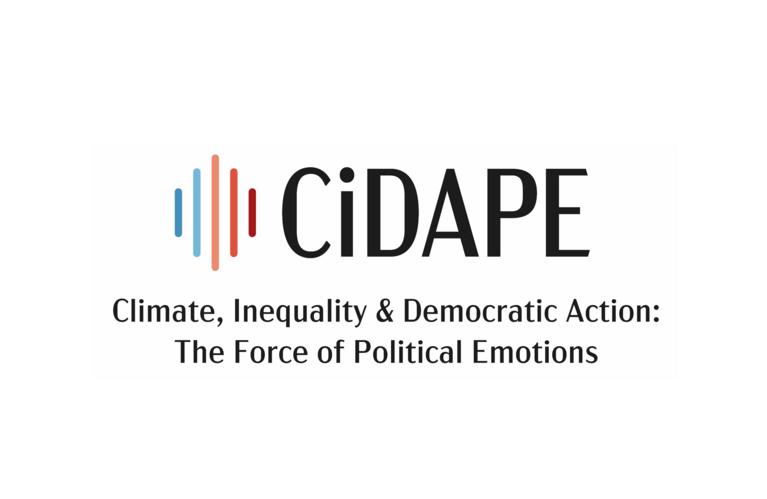Turning Climate Action into Economic Threat: The Far Right’s Moral Storytelling
This article was originally published in the blog of the "Environmental Politics" journal, where Till Hilmar discusses the research from his recently published article in Environmental Politics: Cassandra from the far right: how the German and Austrian populist radical right links climate skepticism with economic issues.
The backlash against policies that intend to mitigate the destructive effects of climate change is in full swing. In the United States, climate denial and delay have become the Trump administration’s official policies. In Europe, too, what only a few years ago seemed like a broad consensus on the direction of climate policy – like decarbonization targets for industry, steady increases in carbon prices, subsidizing and promoting sustainable mobility – is now increasingly under fire.
In October 2025, a leading figure of Germany’s conservative party CSU declared that the planned phase-out of combustion engines “threatens prosperity”. Ironically, of course, it was conservative leaders themselves, most notably then-chancellor Angela Merkel, who had championed the Energiewende (Germany’s energy transition) a decade earlier. When mainstream conservatives now frame the green transition as a danger to economic well-being, this signals a striking shift of the political center toward positions that, until recently, were mostly voiced on the far right.
In my new article in Environmental Politics, “Cassandra from the Far Right” I show that Europe’s far-right parties have long laid the groundwork for this shift. For more than a decade, they have been devising and promoting stories that cast climate action as economically irrational and morally suspect. Specifically, I study the cases of Germany’s Alternative für Deutschland (AfD) and Austria’s Freedom Party (FPÖ).
A moral language about the economy
In the article, drawing on the work of economic sociologists such as Jens Beckert, Marion Fourcade, and Viviana Zelizer, I introduce the notion of economic signification to describe the symbolic and affective use of economic reasoning to construct moral and political meaning. It refers to a way of speaking that only superficially engages with technical debates about markets or economic outcomes. At its core, economic signification tells stories about society, stories about who is to blame and whose needs are recognized or ignored, and why actors pursue certain lines of action. Economic signification therefore provides cultural scripts for interpreting economic processes through a moral lens: linking them to ideas of responsibility, competence, and legitimacy, and integrating them into broader visions of social order.
Drawing on more than 6,000 tweets from AfD and FPÖ politicians between 2009 and 2023, I show how these actors attack climate policy through economic signification: they turn it into a moral drama populated by protagonists and antagonists. Climate activists, politicians, and scientists become the villains (dreamers or cynical profiteers) while “ordinary” citizens, the “hard-working” middle class, and “taxpayers” are cast as victims.
I identify several recurring narrative tropes in this material. As Aristotle recognized, narrative form gives political argument causal and temporal coherence as well as emotional resonance. It successfully links depictions of structural transformations, such as rising energy prices and industrial change, to familiar moral worlds.
Decline for all
One trope is organized around the notion of decline for all: it invokes the specter of economic collapse. AfD politicians have been warning for years that climate policies and the transition to renewables will bring “mass unemployment”, “mass insolvencies”, and the “annihilation” of German industry. Party leader Alice Weidel issues her warnings in short, catchy verses: “Who sends our miners home, shuts down nuclear power plants, and only then realizes that sun & wind cannot cover our energy needs, acts absolutely irresponsibly” (posted on Twitter/X on Dec 02, 2022, original in German).
In this declaration, the energy transition becomes an act of collective self-destruction and a betrayal of the country’s postwar industrial legacy and its Wirtschaftswunder (economic miracle) that is still a powerful symbol in national memory. The trope also draws emotional strength from its resonance with East German experiences of deindustrialization in the 1990s.
After Russia’s full-scale invasion of Ukraine in 2022, these narratives intensified. Rising energy prices were reframed as evidence that domestic governments, with their green transition agenda and carbon pricing measures, not the Kremlin, were to blame. Instead of seeing the invasion as the source of crisis, AfD and FPÖ redirected blame toward Berlin, Brussels, and Vienna. In their version of events, price hikes were not a consequence of war, but a deliberate act of economic sabotage, a price rise “by design”. Here, economic signification enables a powerful rhetorical reversal: climate (and foreign) policy are defined as the very causes of economic decline.
Moralizing redistributive effects of climate policies
A second trope revolves around undeserving victims and undeserving recipients of climate policies. AfD and FPÖ defend groups such as commuters, car drivers, or low-income households as those unfairly burdened by rising energy costs, and simultaneously construct a contrasting set of “undeserving” beneficiaries. An example from Austria is the attack on the Klimabonus, an eco-social payment introduced in 2022 to compensate residents for rising energy costs. FPÖ politicians redefined this instrument – which was abolished in 2025 – as a moral scandal, claiming that “asylum seekers”, “criminals”, and even “the dead” were receiving the benefit, while “hard-working” Austrians and “newborns” were unfairly excluded.
In this way, the FPÖ turned a universal climate-compensation measure into a story of injustice. The moral lesson was that climate policies reward the wrong people. Such arguments tap into a longstanding welfare-chauvinist logic in which social and environmental policies, are defined as “perverse” in their effects, as deepening inequalities instead of mitigating them.
The far right’s “voice of reason”
Across both countries, another set of tropes depicts climate actors like politicians, activists, and scientists as either corrupt (bad faith) or delusional (naive/incompetent). They are portrayed as “climate priests” enriching themselves on subsidies or as idealists who miscalculate, and ignore, the “real” costs and effects of these policies. Either way, they are economically irrational.
This framing allows far-right actors to speak not as radicals but as realists. By invoking the authority of economic reason, they appear calm, pragmatic, even protective, in contrast to the “hysterical” or “ideological” pro-climate actors. The Cassandra metaphor I use in my article captures this stance: like the mythological prophet whose accurate warnings were dismissed as madness, both AfD FPÖ cast themselves as tragic truth-tellers, warning of economic ruin that no one will heed until it’s too late.
Of course, what is missing from this picture is any discussion of the costs of inaction. The economic and environmental consequences of not mitigating climate change and the consideration of externalities remain invisible. As the 2025 Lancet Countdown on health and climate change notes, in 2024 alone, weather-related extremes caused $304 billion in economic losses, and there is evidence that, without accelerated action, climate change could erode about 19% of global income by 2050.
The far right’s economic discourse distorts what is happening on the ground, but it is also highly selective: it moralizes immediate costs while repressing long-term risks.
Political emotions of “rational” resentment
Understanding this pattern matters beyond Austria and Germany. As economic pressures like inflation, energy security, and the polarization of middle-class skills mount across Europe, far-right parties are successfully rearticulating the climate question as a question of economic fairness. They offer a politics of rational resentment, in which anger appears as reasonable response to “excessive” and “irrational” state action. Such emotional framing has become a significant element of how the climate crisis is publicly understood and contested, as we explore in our EU Horizon project CIDAPE.
For climate advocates, this poses a significant challenge. Appeals to scientific evidence alone will not suffice if the far right continues to monopolize the language of economic realism and connect it to moral tropes. Countering this narrative will require showing that a just transition is not just environmentally necessary but that it also resonates with people’s lived experiences – with their economic struggles, aspirations, and sense of fairness. As Cassandra’s story reminds us, it is not enough to be right about impending catastrophe. What matters is whether the warning resonates, and who manages to tell a convincing story about the future.
04.11.2025

© Till Hilmar
Till Hilmar received his PhD in sociology from Yale University and is a postdoctoral researcher at the Department of Sociology, University of Vienna. His research interests include political sociology, social transformation, culture and inequality, social memory, and integrating qualitative and computational methods. He is a PI in the EU Horizon Project CIDAPE on inequality, climate change and the force of political emotions.
